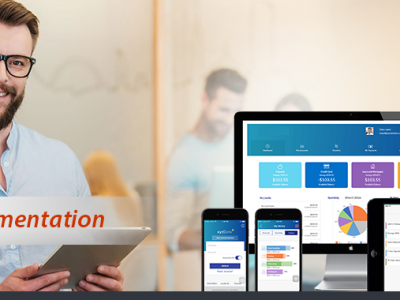
Why CRM Needs Strategic Planning Behind It

I often think back to my days in banking, especially when the topic of strategic planning comes up. Every time they felt they needed to become more efficient, they would hire a team of consultants. I would never suggest that approach for a middle market company.
Sign up to get FREE CRM Trial
I’ll never forget my days in banking. I worked for one of the largest bank holding companies in country, and I was part of a number of due diligence teams during the acquisition surge. Hundreds of people trying to figure out how this bank would fit in. But the scariest thing had to be the strategic planning process we went through, the sole stated purpose of which was to improve the efficiency ratio. Guess what. A year after I left the efficiency ratio hadn’t budged!
While I was working on projects designed to integrate credit cultures across new acquisitions, in effect an internal relationship management program, the executives were on the hunt for quick stock up-ticks. To date that, they spent millions on an army of consultants leading to everything from the removal of free coffee to layoffs across board. I’m not going to mention the tie-in to the last real estate market crisis because that would be too obvious. But not to the strategic thinkers.
Based on the experiences I’ve had with the strategic planning process, I’ve noted that while the phrase is used, it’s a guise for quick fixes, trimming around the edge. There are some very good consultants in this area but they are under a lot of pressure to show results now. Can you think of anything strategic that can be manipulated in the short run?
The strategic planning process for CRM is about creating better long term relationships with your customers. Developing a CRM strategy is critical form CRM success. So don’t let the fact that the typical strategic planning process is ripe with failure deter you from developing the plan you need for a successful CRM initiative. Follow some simple steps and you will have great success.
Create a CRM Strategy – Without a CRM strategy, there is no guiding corporate wide vision for how you will interface with customers. This is a key component which works in conjunction with your functional CRM initiative (the technology). It takes both to succeed.
CRM Analysis – Before you can begin your CRM journey, you need to know where you’re starting so you can plan your route accordingly. You can’t drive from NYC to LA in a day.
Identify CRM Benefits – Clearly identify the knowledge you will gain and how you will apply this knowledge (about your customers) through its collection in your CRM software and customer database.
Quantify CRM Benefits – Once the benefits have been defined, you must determine what the economic impact will be to your bottom line. Without this, you will not know the appropriate level of investment to make.
The Costs of CRM – You know the financial benefits, now you need to pair that up with the costs. Your CFO is more likely to approve a project that has a clear return on investment.
Risk Must Be Managed – CRM is an investment. Investments imply risk and reward. To get the reward you have to mitigate the risk by identifying it and managing the outcome. It will be difficult to justify a project if you haven’t addressed the downside.
Implementing the CRM Strategy – Finally, the CRM strategy has to be implemented to take effect. This part may include software, but first you have to get the humans on board. Implementation of software is only a part of the process.
Measuring Success – If you know where you want to go, then you should be able to measure your progress and any needed course corrections.

